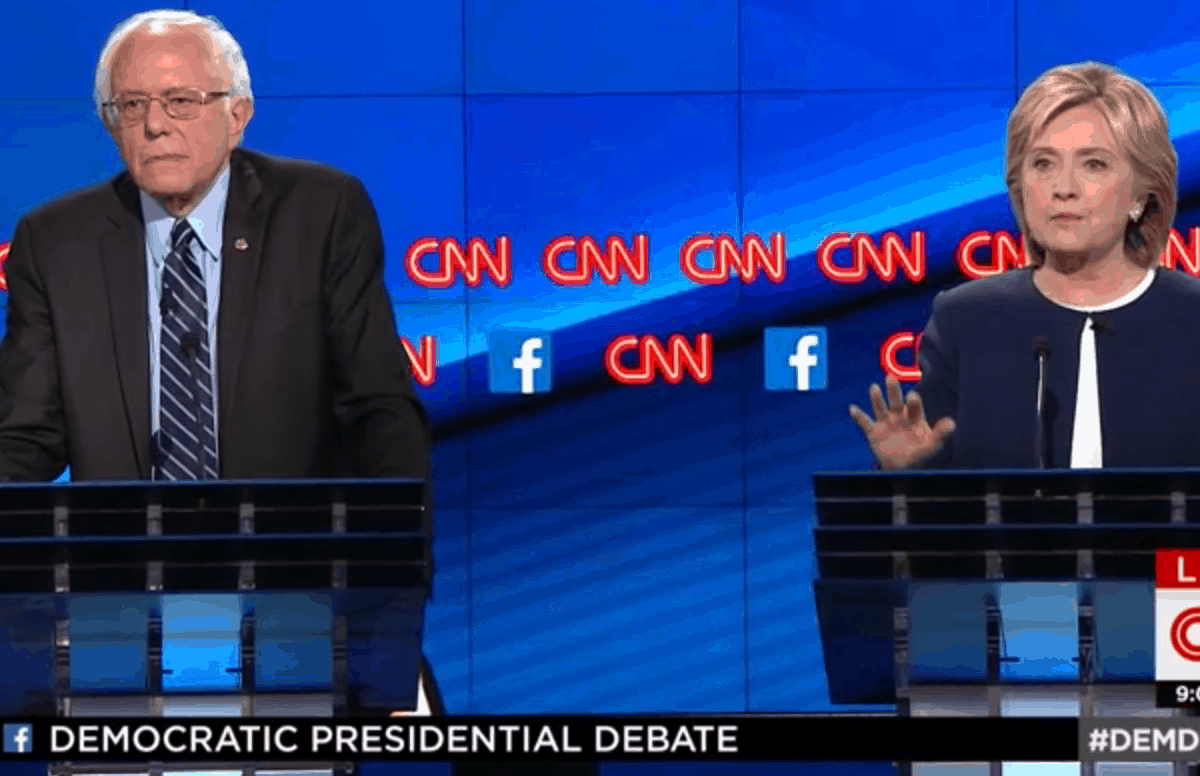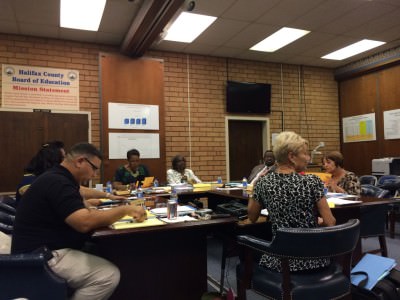
The GOP presidential debates have been light on education thus far. In the first Republican debate, moderators gave the candidates some time to discuss the Common Core standards, focusing in particular on Jeb Bush, who has supported them. But the second debate did not address K-12 issues.
Tonight, the first Democratic presidential debate brought together five candidates, only two of whom are considered serious contenders — Bernie Sanders and Hillary Clinton. In addition to the two most well-known candidates, Maryland Gov. Martin O’Malley, former Virginia Sen. Jim Webb, and former Rhode Island Gov. Lincoln Chafee all participated.
Did they pay more attention to how the United States educates its young? Not really.
Both O’Malley and Sanders mentioned education in their opening remarks. O’Malley said that under his tenure, Maryland has nurtured some of the best public schools in America, and Sanders said that the country should be putting more money into education than it does incarceration.
There was some discussion of college affordability. Sanders was asked about his plan to make college free for everybody.
“This is the year 2015,” he said. “A college degree today is the equivalent of what a high school degree was 50 years ago.”
He went on to say that the U.S. once decided that high school should be available to all for free, and that the same should apply to a college degree now. He said he would pay for free college at public universities with a tax on Wall Street.
Clinton responded, saying she supported free tuition for students at community colleges and public universities, though she said students receiving free tuition at public universities should be required to work a certain amount of time in exchange. This is part of a proposal she has floated that would also include families paying “realistic contributions” for public universities.
The candidates were also asked about in-state college tuition for undocumented immigrants.
But that’s it. The debate never addressed the topic of K-12 education.
The question is are the debates’ relative lack of conversation about K-12 education a reflection of the priorities of the politicians? Or, does it reflect a belief that education isn’t a priority to voters?
What do you think?


